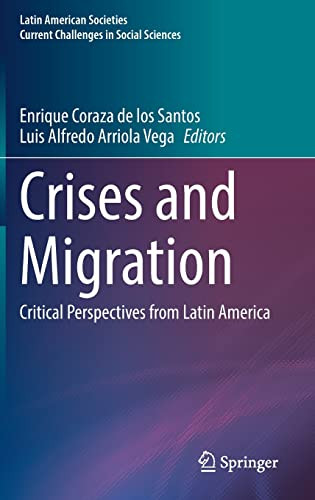

Most ebook files are in PDF format, so you can easily read them using various software such as Foxit Reader or directly on the Google Chrome browser.
Some ebook files are released by publishers in other formats such as .awz, .mobi, .epub, .fb2, etc. You may need to install specific software to read these formats on mobile/PC, such as Calibre.
Please read the tutorial at this link: https://ebookbell.com/faq
We offer FREE conversion to the popular formats you request; however, this may take some time. Therefore, right after payment, please email us, and we will try to provide the service as quickly as possible.
For some exceptional file formats or broken links (if any), please refrain from opening any disputes. Instead, email us first, and we will try to assist within a maximum of 6 hours.
EbookBell Team

0.0
0 reviewsThis book critically examines the association between the notions of crisis and migration in the context of Latin America, and from three different perspectives: first, it analyzes the discourses based on the concept of crisis employed by the media, academic researchers, civil society organizations and the state to frame human mobility issues; second, it investigates migrants’ agency under conditions of crisis; and third, it discusses whether “migration crisis” is a conjunctural or structural phenomenon in the region.
Chapters in this contributed volume investigate the crisis-migration nexus in seven Latin American countries – Argentina, Brazil, Colombia, Costa Rica, Mexico, Nicaragua and Uruguay – by discussing different human mobility phenomena, such as the migrant caravans that departed from Central America bound to Mexico and the United States; the Nicaraguan exodus caused by the political crisis in the country; the perception of Venezuelan migrants in Colombia’s media; the presence of Caribbean migrants in Brazil, Uruguay and Argentina.
Crisis and Migration: Critical Perspectives from Latin America will be of interest to a wide range of social scientists interested in migration studies, as well as to policy makers and civil society organizations. This book offers a fresh look at the way we conceive, represent, and think about the relationship between crisis and human mobility. As the volume’s contributions show, a critical examination of the notion of crisis is a first step towards a more comprehensive understanding of the plight of present-day migrants worldwide.